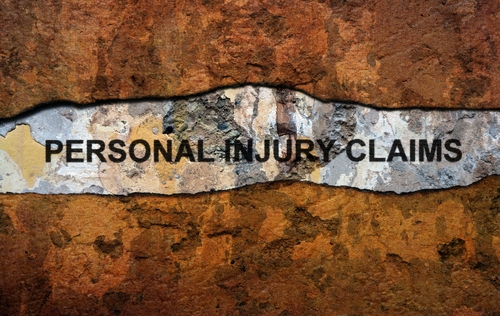
Hiring a Daytona Beach personal injury lawyer to help with your injury claim is a smart step after being injured in an accident. This legal professional will learn the facts of your case and work to gather evidence to support your claim for compensation.
However, before filing a Florida personal injury claim, it’s important to know if you have a case. This means answering the question – do you have the legal grounds to file a personal injury lawsuit in Florida?
In Florida’s personal injury law, negligence plays a huge role in whether you have the right to sue for damages and who you sue (the liable or at-fault party). Learn more about negligence and what’s considered when filing a personal injury lawsuit here.
Understanding the Statute of Limitations
Before diving into the details of negligence, you should understand that you don’t have an indefinite amount of time to file a personal injury lawsuit. All states have established time limits called the Statute of Limitations. In Florida, you have up to four years to sue for compensation if you can prove negligence (with the help of your Daytona Beach personal injury lawyer).
There are some exceptions to the four-year Statute of Limitations. One exception is if someone dies because of the accident. In this case, you have just two years to file a wrongful death claim.
What Is Negligence?
The broad definition of negligence is when someone fails to exercise reasonable care. The term “reasonable care” refers to the level of care someone who is “reasonably careful” would take under similar circumstances.
In most cases, negligence is doing something or failing to do something a reasonably careful person would do in a like situation.
There are four elements of negligence, and it’s necessary to prove all four of these to have the right to file a personal injury lawsuit in Florida.
- There was a legal duty to use due care.
- The legal duty of due care was breached in some way.
- There was causation that shows the breach caused the injury.
- Tangible damages or injuries resulting from the breach.
It’s up to the plaintiff (victim) and their Daytona Beach personal injury lawyer to provide proof of these elements. This burden of proof must be met to have a successful personal injury claim.
Duty
It’s up to you to provide proof that the party you say is to blame for your accident and injuries owed you a duty of care. This means that actions or inactions of the property owner, operator, manager, or even staff resulted in hazardous conditions, and no precautions were taken to ensure others did not suffer harm in slip and fall cases. In car accidents, the duty of care is implied since all drivers have a duty of care to others on the road to operate their vehicle safely.
In each type of accident case, it’s up to you and your attorney to show why the accused at-fault party owed you a duty of care.
Breach
Just because you were in an accident, it doesn’t mean someone else breached the duty of care. You must gather evidence that proves that the other party was liable in some way. For car accidents, the proof may be that the other driver was speeding or distracted. For slip and fall accidents, your premises liability lawyer may provide proof that the uneven flooring caused the incident that led to your injuries.
Causation
The negligence must be the underlying cause of your injuries or damages. For example, the accident wouldn’t have occurred if the situation had not existed. For example, (in the example above), the accident would not have happened if the other driver had not been speeding. Or, if there had been a warning sign about the uneven flooring, you would not have slipped and fallen.
Injury or Damage
Property damage or bodily injury must have occurred because of a party’s negligence. You must provide proof of this injury or damage. Some of the ways you can prove this are with receipts for repairs to your vehicle, medical bills for treatment of your injuries, the time you spent away from work for proof of lost wages, etc.
Understanding Comparative Negligence in Florida
The state of Florida has a comparative negligence law. This means it’s necessary to weigh the fault of all parties involved in the incident or accident. Many injury cases don’t come down to a single person being completely responsible.
For example, in a slip and fall case, while a property owner should warn about uneven flooring, you (the accident victim) should be watching where you are going. If you had been, you might have avoided the hazard.
In situations where comparative negligence is under 50% for the defendant, you can file a personal injury lawsuit and receive the full valuation of the compensation. However, if you are found to be 51% or more responsible, you will be barred from recovering compensation for the incident.
An example is if your total compensation amount is $100,000. If you are found to be 40% at-fault for the accident, you will receive $100,000 minus 40%, which is a total of $60,000.
Florida’s No-Fault Insurance Rules
Another factor that plays a role in Florida personal injury cases is that this state has a no-fault statute, which applies to car accidents. The goal of this law is to help simplify the settlement process.
If you did not experience catastrophic injuries in your car accident, the insurance companies will “sort out” the details. For example, your insurance carrier will cover the cost of your injuries, and the insurance carrier for the other driver will handle theirs. You don’t file a lawsuit against the other driver for normal injuries, regardless of who was at fault.
The exception to this is with catastrophic injuries. These injuries will greatly impact your quality of life and include things like amputations, brain injuries, or severe compound fractures. Showing that you have experienced this type of injury requires your Daytona Beach personal injury lawyer to gather medical evidence and, in some cases, bring in expert witnesses to testify on your behalf. Other types of evidence that may be needed in these cases include cell phone records, videos from traffic cameras, witness statements, mobile reports, police reports, and GPS tracking.
Sometimes, insurance policy limits can pose a hurdle. For example, if you have an auto insurance policy that only covers $100,000 of your related costs, you may have to pay out-of-pocket for your remaining medical bills. It’s a good idea to speak with a Daytona Beach personal injury lawyer to learn more about your rights and options if you are in this situation.
Understanding Florida’s Strict Liability Laws
Some accidents fall under strict liability laws in Florida. With this, there’s no comparative liability issue to address. Usually, strict liability cases occur in accidents with a known danger. One example is dog bites. Florida’s law will hold a dog owner liable, even if the animal presented no aggressive or dangerous tendencies in the past.
Types of Damages You May Recover After Proving Negligence
If you, with the help of your Daytona Beach personal injury lawyer, can prove the four elements of negligence, you must calculate your damages to determine the actual value of your Florida personal injury claim. In doing this, you may find that you can recover compensation for the following:
- All medical-related costs
- Any loss of income
- Non-economic damages like mental anguish and pain, and suffering
- Diminished quality of life
Your attorney can also factor in other damages you may have experienced due to the accident.
Suing After a Florida Accident: Know Your Rights
If you were involved in an accident caused by someone else’s negligence or wrongful act, you might have the right to file a personal injury claim. However, it’s necessary to prove that negligence existed and was the cause of your injuries or losses.
Because of how complex personal injury lawsuits can be, it’s recommended that you seek legal assistance with your case to determine if the incident is worth filing a lawsuit for.
The first step is for you to contact a Daytona Beach personal injury lawyer at Zimmet & Zimmet for help with your claim. By scheduling a free, initial consultation, you can discuss your case and feel confident that this legal team will do everything possible to help you achieve the best possible outcome for your personal injury claim. While accident cases may seem complex and overwhelming, you can count on our experienced legal team to provide advice and guidance throughout the legal process.
Read More
- 5 Tactics the Insurance Companies Use to Get You to Settle
- How Do Daytona Beach Injury Lawyers Get Paid?
Have you been injured in an accident or fall? Do You have question and want to know your legal options. Call 386-255-6400 for a free consultation and remember there is NO FEE unless WE Win.
